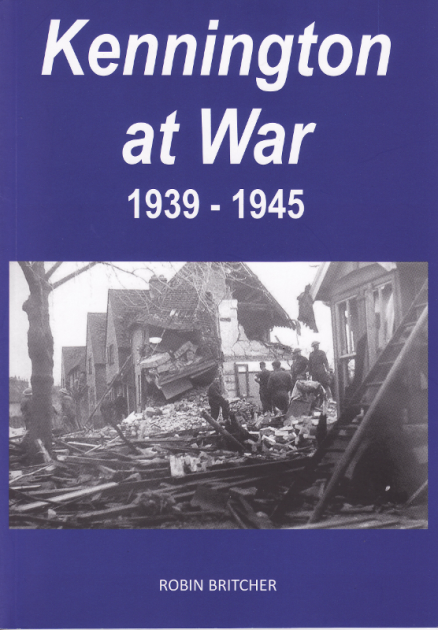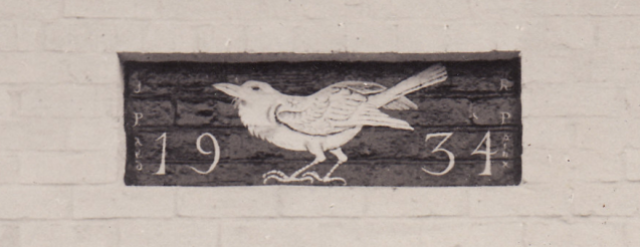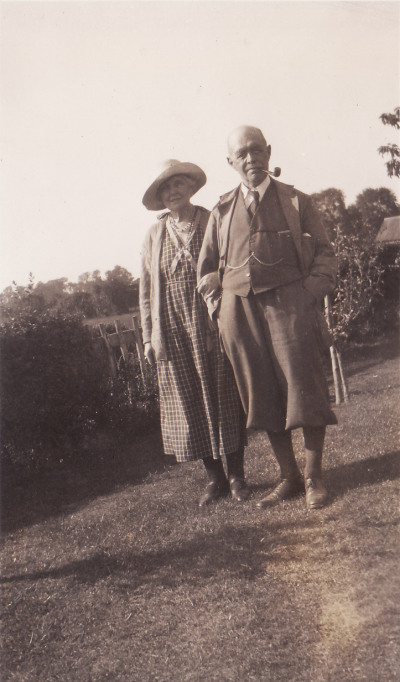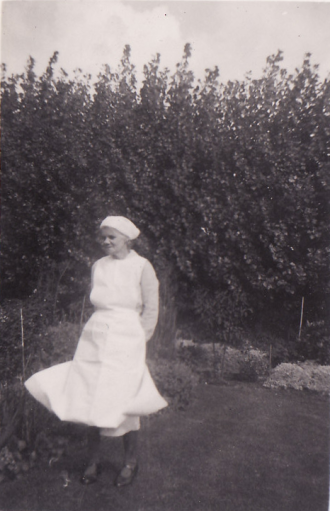Calderonia is an experiment in biography through a blog. It tells the story of George and Kittie Calderon’s lives from 30 July 1914 to 30 July 1915 from day to day as it happened, but exactly 100 years afterwards. It therefore feels like a biography in real time. When no facts were known for a particular day, the author posted on subjects ranging from the Edwardians, recently published biographies and his own problems as a biographer, to translating Chekhov and the Commemoration of World War I.
The blog-biography can be accessed in various ways. To read it from the beginning, go to the top of the column on the right and click the appropriate link. You can then read forward in time by clicking the link at the end of each post. If you wish to start at a particular month, scroll down the column on the right to Archive at the bottom. Posts can also be selected through Search Calderonia and the Tags on the right. An update on the complete biography of George Calderon always follows this introduction.
17/2/16. The weekly digests of events in World War 1 keep coming in from The Times, every day the media run items and features connected with it, the public debate about commemorating the fallen continues. Although I left the field of battle, as it were, on 7 June 1915, there is no chance of getting away from the War. It gets to you…
I have no desire to revive the debate about commemoration, ‘making peace with the Great War’, empathy/sentimentality, ‘war porn’, historicisation etc — new visitors can see from Recent Comments, the archive of ‘Watch this Space’, and a search on ‘Commemoration’, how much we thrashed these subjects out last year, and that by December some of us felt we had said our last word. But with the Battle of Loos and the collapse of the Russians’ Polish front last autumn, the evacuation from Gallipoli last month, the battle for Verdun this month, and the Somme coming soon, one inevitably continues to mull issues. Perhaps since December some followers have acquired new angles on previous themes. Personally, I want to address only a small poetical matter, but I know it ‘ramifies’.
It’s common knowledge that line 13 of Laurence Binyon’s ‘For the Fallen’ is often recited as ‘They shall not grow old’, when it should be ‘They shall grow not old’. Is this done through mere forgetfulness or ignorance? I don’t think so.
If, as is natural, we assume that the words are expressing a plain negative, namely that the fallen, being dead, will not grow old, then we would expect the metrical, iambic stress to be on the negating word ‘not’: ‘They shall not grow old…’ In terms of subject and predicate, we could represent this as: ‘They shall not (grow old).’ However, that is not what Binyon has written. In his version the metrical stress is on ‘grow’: ‘They shall grow not old…’ The half-line therefore rises appropriately on ‘grow’. Grammatically, this might appear to be just an archaic inverted negative. But actually it makes ‘not’ an unstressed syllable, produces a slight pause after ‘grow’, and could be represented structurally as: ‘They shall grow (not old).’ In other words the movement of the line is towards making ‘not’ qualify ‘old’ rather than qualify ‘grow’. Growing into a state of not-oldness sounds odd, and I would suggest that it is this apparent non sequitur that causes readers to stumble and ‘correct’ the line to ‘They shall not grow old’.
However, if you read the line as Binyon wrote it, it seems to me inevitable that you visualise the fallen as growing into an affirmative new state of being ‘not-old’, and that this is what the poet intended. What could this state be? Well, transfiguration, immortality, glory. Glory is a very tricky word today, debased and even pejorative. I note that it is given fifteen different meanings in The Chambers Dictionary, ranging from ‘renown’ and ‘triumphant honour’ to ‘boastful or self-congratulatory spirit’ and ‘presence of God’. But the ‘not-old’ state of the fallen in Binyon’s poem reminds me of nothing so much as the lines from Henry Vaughan’s poem ‘They are all gone into the world of light’:
I see them walking in an air of glory,
Whose light doth trample on my days:
My days, which are at best but dull and hoary,
Mere glimmering and decays.
Most of Binyon’s poem is concrete and fastidious; but in ‘They shall grow not old’ I feel it approaches the transcendent dimension of Wilfred Owen’s ‘Greater Love’. The soldiers’ act of supreme love, namely their ‘ultimate sacrifice’ for others, has removed them to that place of transfiguration where ‘you may touch them not’ (Owen). By comparison, ‘we that are left’ live out days that are ‘but dull and hoary’, in Vaughan’s words.
Given that ‘For the Fallen’ is the most famous war poem in the English language, it is difficult to believe that this point has not been discussed, and analysed better than I can, many times before. However, I cannot find any discussion of it on the Web.
By contrast, you will find plenty of discussion on the Web of the second half of Wilfred Owen’s poem ‘Dulce et decorum est’, about a gas attack, and specifically of the line ‘His hanging face, like a devil’s sick of sin’. This discussion was possibly triggered by Seamus Heaney asking his students at Queen’s University whether the poem wasn’t ‘over-written’, ‘artistically bad’, and the lines in which ‘devil’s sick’ occurs weren’t ‘a bit insistent’, ‘a bit explicit’ (see his The Government of the Tongue, Faber & Faber, pp. xiv-xvi). Heaney seems to focus this into a conflict between ‘truth’ and ‘beauty’, ‘life’ and ‘art’, although his final take on the matter seems ambiguous; some might say specious.
The reason, in my view, that Owen’s words here are ‘over the top’ (‘If you could hear, at every jolt, the blood/Come gargling from the froth-corrupted lungs,/Obscene as cancer, bitter as the cud/Of vile, incurable sores on innocent tongues’) is that his reaction is naturally to use the strongest words he can find, this backfires on him, yet ultimately produces an incoherence that perfectly enacts his horror.
If you have read as many personal accounts of WW1 warfare as I have in the past year (Ypres and Gallipoli), you too become incoherent if you try to express your reaction to the horror and degradation of it. I cannot think that there has been another war in which the human savagery and sheer filth have reached these depths. We have to accept, which I think Heaney never really did, that ‘devil’s sick of sin’ etc is not an iota too strong for it.
The poles of our World War 1 poetry are ‘devil’s sick’ and ‘glory’. We are rightly being overwhelmed by the former in these anniversary years, but we must never forget the latter either. Apparently it was Lloyd George who proposed the words ‘The Glorious Dead’ on the sides of Lutyens’s Cenotaph. If so, he was a genius, but so many contemporaries were involved in the post-war memorialisation that I expect it was really a consensus. There is no ‘To’ in it, just the three words, as if to mean ‘This says all we can about them’. It is an age removed from Rupert Brooke’s understandably tawdry line of autumn 1914 ‘Blow out, you bugles, over the rich Dead!’. After our protracted, ‘wordy’ discussions of Commemoration last year, a follower of Calderonia emailed me that it was all very interesting but ‘The Glorious Dead’ remained; that was in a way all that could be said…
‘Lapidary verse’ is an interesting, classical art (Philip Larkin and Ted Hughes produced notable inscriptions for the Queen’s Silver Jubilee), and perhaps this recent anonymous example drives at what I have been trying to say:
EPITAPH
Their uniforms of shit
their lives of shit
their deaths of shit
we live.
What means forget
THE GLORIOUS DEAD?
I should inform new visitors to the blog that Laurence Binyon was a lifetime friend of George Calderon’s and wrote an ode In Memory of George Calderon whose last verse bears a resemblance to the final lines of ‘For the Fallen’.
I am currently revising Chapter 6, ‘Russianist, Novelist, Cartoonist’, which at sixty-five printout-pages is by far the longest. It covers the years 1900-1905. I keep thinking I must split it, but it is really the backbone of the book, because it attempts to show from analysis of George’s essays and novels that he is a first-rate Russianist and a significant Edwardian writer… Unfortunately, following discoveries in the last year I have to add 500 words to it about George and Taoism. The research and evaluation have been done, but it’s still going to be difficult to know where to splice this subject in. I will then have edited/rewritten nearly half of the book.
This is the most recent ‘Watch this Space’ post. For the archive of ‘Watch this Space’, please click here.































Watch this Space
Calderonia is an experiment in biography through a blog. It tells the story of George and Kittie Calderon’s lives from 30 July 1914 to 30 July 1915 from day to day as it happened, but exactly 100 years afterwards. It therefore feels like a biography in real time. When no facts were known for a particular day, the author posted on subjects ranging from the Edwardians, recently published biographies and his own problems as a biographer, to translating Chekhov and the Commemoration of World War I.
The blog-biography can be accessed in various ways. To read it from the beginning, go to the top of the column on the right and click the appropriate link. You can then read forward in time by clicking the link at the end of each post. If you wish to start at a particular month, scroll down the column on the right to Archive at the bottom. Posts can also be selected through Search Calderonia and the Tags on the right. An update on the complete biography of George Calderon always follows this introduction.
16/3/16. Segueing (I hope that is correct — I have never used the verb before) from last week’s post, I have to report three completely new developments that illustrate, I think, Jenny Hands’s thought-provoking Comment (see above right).
I had not heard the saying ‘you have to have a plan to be able to change it’ before, possibly because in writing, I find, you have not so much a plan as a conception, and that conception doesn’t live in your mind as a plan does, you live in the conception, which spontaneously grows till it’s ‘right’. However, I can well imagine that this saying is a truism in modern management, and in my experience the deadlines that form part of the project-plan of writing a book do operate as Jenny Hands suggests.
Last week I set myself the task of completing the revision of chapters 11 (‘Chekhov Is Such a Great Man…’) and 12 (The Trouble with Trade Unionism). The first task is to reread the entire file for the chapter, which leads to looking at some things from slightly different angles, revisiting some letters and documents, sometimes discovering entirely new, relevant things. I like to do it in a single, eight-hour or so sitting, so that I feel I’ve literally ‘got my head round it’, but it leaves the mind so tired you can’t start the actual revision until you have recovered, i.e. next morning.
The file for chapter 11 is particularly thick, but I managed to read half of it over the weekend, so that by last Monday morning I was ‘ahead’… Ah, but the revision of the beginning was particularly drastic and fiddly, because the discovery only last year of George’s 1907 diary threw wide open the question of whether George didn’t, perhaps, er, get the idea of translating The Seagull from Constance Garnett, whom he met for the first time that year and had problematical relations with later in the Stage Society. Even so, I finished that chapter (9119 words) by last Wednesday morning and went straight into chapter 12. That file is quite thin, because it is almost entirely factual rather than literary, and by the end of Thursday I had finished revising the chapter (5658 words) to my satisfaction. So I was a day ‘ahead’ of deadline!
Unfortunately:
1. I was so exhausted I knew it would be counter-productive to go straight into chapter 13, Wilder Shores of Translation (10,800 words and mesmerisingly literary). What you are after, of course, when you are revising a long work, is absolute consistency. It’s therefore vital to do the work on the same level of energy. You can sometimes spot — around the middle — when writers have begun to push themselves too hard with their revision/editing.
2. Followers may recall that the life-changing discovery last year that George had had a serious flirtation with philosophical Taoism led to my losing days and days in my rewriting of chapter 6 (26,896 words). I concluded the new section: ‘there are a number of small facts that suggest his interest in the Taoist view of life continued to at least 1912, and we shall note these in passing.’ When revising chapter 11, I pondered long the Taoist elements in two sections of George’s famous introduction to Chekhov’s plays, and settled for: ‘they both have distinct Taoist undertones.’ During Thursday night this began to niggle me, by Friday I had decided it was ridiculous — every reader would rightly be screaming ‘well what are they?!’ — so I spent the whole of this Monday reopening the Tao file, wrestling with these ‘undertones’, and explaining them in 300 words… Now, of course, I am behind schedule again. And I ought to add that on Friday I also came to the conclusion that in chapter 12 everyone would want to know what George’s party politics were, i.e. how he probably voted in elections, independently of his left of Centre personal political philosophy; so I would have to go back and grapple with that. But, fortunately, I decided it was better discussed in the Afterword…
3. As I contemplated revising chapter 13, Wilder Shores of Translation, I was suddenly struck by a dread of the one after that, covering 1914-15. This is because in its course chapter 13 focuses down on 1913. It returns the chronotope from four synchronic chapters (i.e. essentially thematic and covering the same period, 1907-12) to a linear timescale, i.e. traditional biography. Chapter 14 therefore begins with January 1914. Frankly, I slightly dread, even, starting work on 13. The dread is undoubtedly having a procrastinating effect. Working on 14, A New and Unknown Adventure, will be weird, as I not only had to live those draining events when I wrote it, I lived them from day to day when I was running Calderonia. I recall that I spoke about reliving the end in my post ‘The Dear Departed’ of 9 February 2015. It will be interesting to see how it turns out.
That is probably enough writerly introspection. Deadlines do get pushed all over the place. You never know in this game what is going to hit you next and put you ahead or days, weeks, months behind… But that’s right: it couldn’t happen unless you had a time-plan in the first place. Curiously, the very fact of writing this post about it may have changed the game and I shall tackle chapter 13 with fresh relish and even get ‘ahead’!
Note. There is a problem with double quotes in WordPress, hence only the title of chapter 11 above has been enclosed in inverted commas — the words here are George Calderon’s own.
This is the most recent ‘Watch this Space’ post. For the archive of ‘Watch this Space’, please click here.